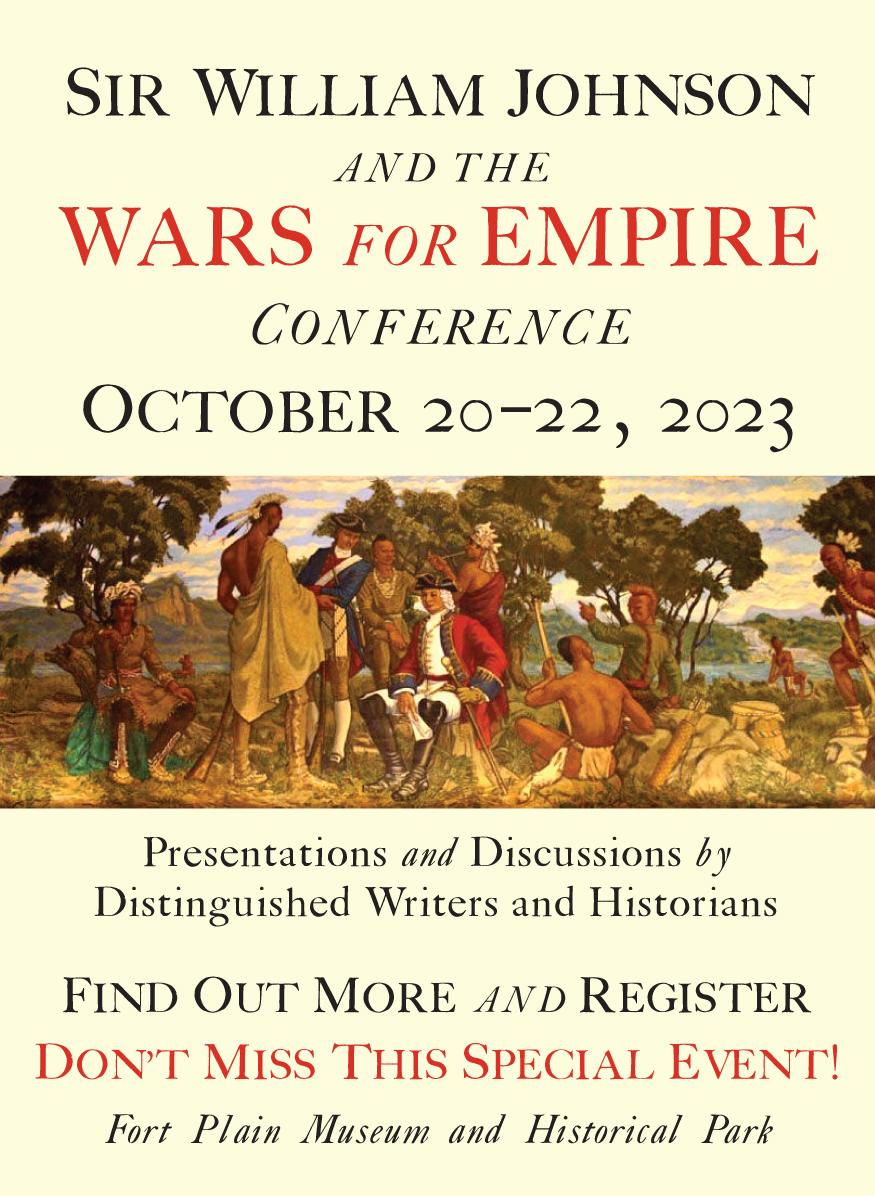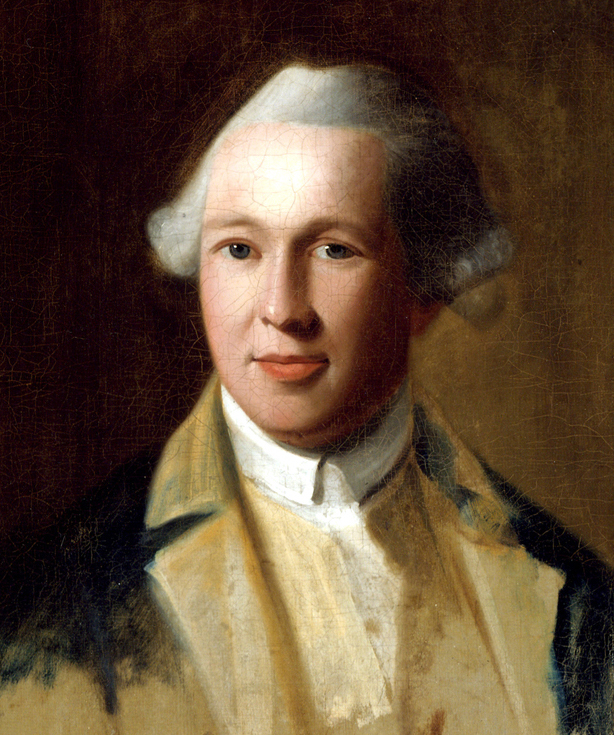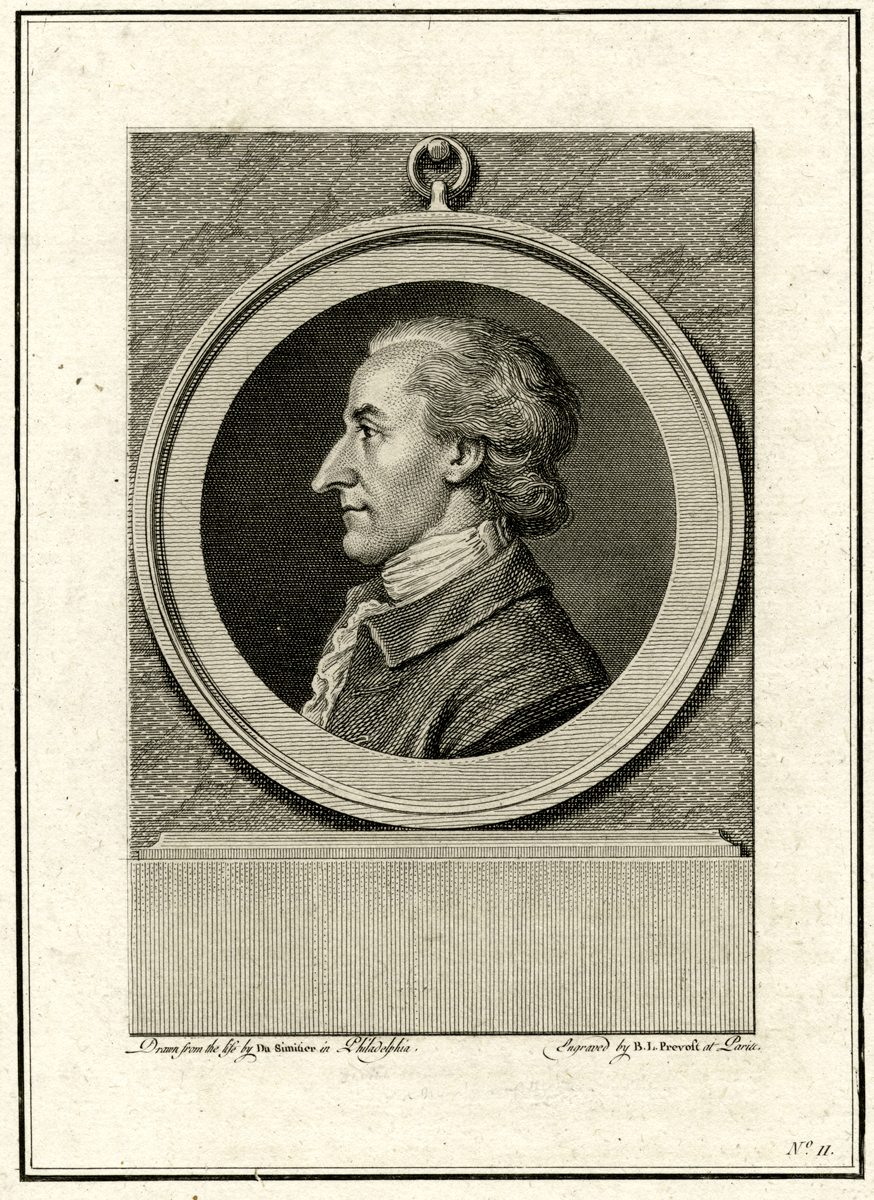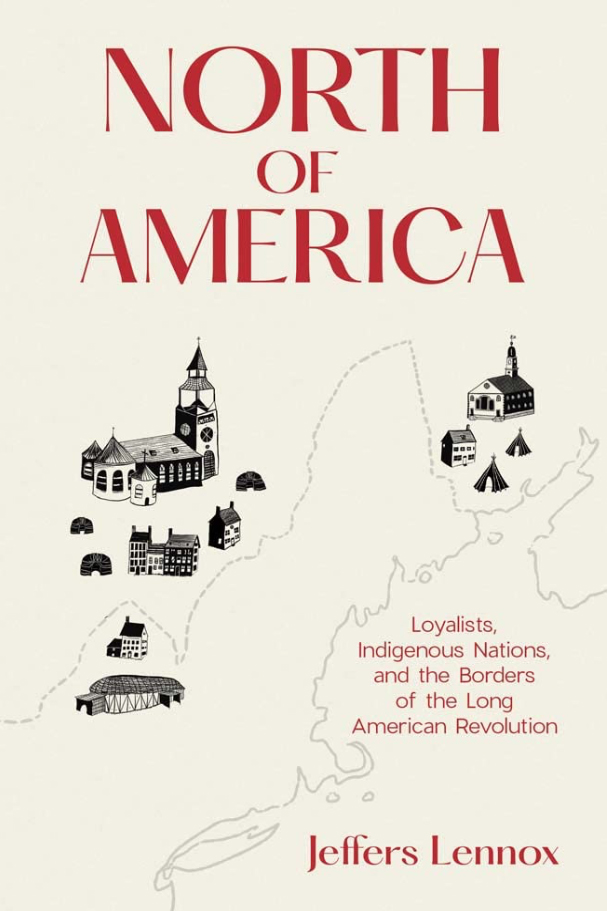Who was the biggest oddball of the founders? Why?
Every Founder had his “foibles,” as Washington acknowledged about himself, but Charles Lee was hands down the most eccentric of the bunch. But his eccentricity did not diminish his military talents. He made mistakes (what general didn’t), but at times his presence and leadership were crucial, and never more so than in October 1776 when he persuaded Washington to abandon the Manhattan death trap.
–John Ferling
When retired British colonel Charles Lee came to America in 1774, he brought great intelligence, energy, and professional military experience that ranged Lake Erie to Turkey. A lively writer, Lee soon composed one of the most reprinted pamphlets laying out the American political positions. Washington consulted him immediately after hearing that war had begun. Lee was ahead of any American-born generals in advocating an independent republic. His expertise was crucial in getting the American army up and running in Massachusetts, then Rhode Island, New York, and South Carolina. But Lee was also an eccentric—a slovenly bachelor who moved from place to place as if he were on a perpetual military campaign, who loved his dogs more than people, whose ego was ultimately his undoing.
–J. L. Bell
Alexander Hamilton makes the top of my list, simply because of his apparent hypocrisy. He argued and fought for American rights, and once independence was achieved, he wanted to make the United States a country similar to Britain, dominated by a ruling political and financial elite where the people had little voice in the government. He opposed the addition of the Bill of Rights to the Constitution and even suggested breaking up the large states into smaller entities so they could not challenge the national government’s power. He frequently expressed his admiration for the British system of government. If he liked it so much, and tried to recreate it in the United States, why did he bother to support the Revolution in the first place?
–Jim Piecuch
This is a tossup between Sam Adams and Tom Paine, with Paine winning by a paranoid brandy-soaked nose. Each had an unalterable faith in his own ideas. But Paine’s attacks on George Washington in the 1790s and early 1800s prove he had lost touch with reality.
–Thomas Fleming
Several were “strange,” peculiar in their own ways, as with any assemblage of personalities. For me, though, peg-legged Gouverneur Morris is the most intriguing. Born an aristocrat (his father was Lord of the Manor of Morrisania, the present-day Bronx), he commented, in memorable fashion on a New York crowd in 1774: “The mob begin to think and to reason. Poor reptiles: it is with them a vernal morning, they are struggling, they are struggling to cast off their winter’s slough, they bask in the sunshine, and ere noon they will bite, depend on it.” Yet at the Constitutional Convention, after giving up on a life term for the president, he suggested two-year terms and popular election, the only delegate to go that far. He then left us with this prophetic gem: “The rich will take advantage of their [the people’s] passions & make these the instruments for oppressing them.”
–Ray Raphael
Here’s a surprise answer: George Washington! Why? Because unlike Napoleon, Lenin, Stalin, Zedong and other major Revolutionary leaders, who grabbed all power for themselves and corrupted their own so-called liberating revolutions, GW refused to be corrupted by power. He didn’t need it all for himself. He laid down his sword in 1783, and he didn’t abuse his authority as the nation’s first president in the 1790s. His self-control made him an exceptional Revolutionary leader, strange indeed in a comparative world history framework.
–James Kirby Martin
By most revolutionary accounts, James Wilson was a highly influential founding father and accomplished legal theorist. He served as a Brigadier General in the Pennsylvania militia, signed the Declaration of Independence, was prominent in drafting the US Constitution and was among President Washington’s initial Supreme Court justice appointments.
However, his personal business interests and outsized financial ambitions clouded his many revolutionary contributions. When Pennsylvania recalled him from Congress in 1777, he commanded large legal fees representing the French government and its interests with the Continental Congress (a revolving door lobbyist in today’s terms). Further, while a United States Supreme Court Justice he actively engaged in western land speculation and fell heavily in debt. Briefly in the Prune Street Jail, Wilson fled Philadelphia to New Jersey and then to North Carolina unsuccessfully trying to escape debtors’ prison. He maybe the only United States Supreme Court Justice to be incarcerated!
–Gene Procknow
James Otis, Jr. is an oft-forgotten Founding Father who had the cushy Boston job of Royal Deputy Advocate General for the Vice Admiralty Court. His landmark 1761 “writs of assistance” speech against the Crown kind of started the revolution. John Adams called Otis “a flame of fire!” and said Otis also coined the phrase “taxation without representation is tyranny”… but Adams’s memory was notoriously bad and Otis probably didn’t think up the phrase. But regardless, Otis, a hero of the early rebellion, started acting really weirdly.
Sometimes Otis would be arguing a case and then immediately reverse himself in speech. He challenged a custom commissioner to a fight outside a coffeehouse, where Otis had the snot beaten out of him. He became more unstable as time went by and subject to violent outbursts. He died in 1783 when a bolt of lightning killed him standing in an Andover house doorway.
–John L. Smith, Jr.
Taking some license with the term “Founding Father,” the so-called “Father of the United States Navy” (alongside John Barry) John Paul Jones had one of the most confusing endings for someone portending such great success in the early years. A self-promoter, as so many were, he certainly garnered great attention for his various naval adventures.
However, it is the strange decline that Jones experienced in the ensuing years, when he did not receive much notice from Congress and then moved on to become an admiral in the Russian navy, was suspected of raping a twelve year old Russian girl and was later found dead, face down in a cheap Paris apartment that seems so incongruous. An intriguing man certainly, with his own faults, Jones was his own man and not one to fall easily into accepted norms of behavior.
–Gary Shattuck
In my opinion, the strangest founding father, the biggest odd ball of the bunch, was the brilliant, stubborn, and eccentric General Charles Lee. John Adams wrote, “[Lee] is a queer creature. But you must love his dogs if you love him, and forgive a thousand whims for the sake of the soldier and the scholar.” I like to read about him because he did “his own thing.” Lee was an outspoken advocate for separation from England regarded the Declaration of Independence as a triumph, yet he was court-martialed in 1778 for disobedience of orders in not attacking the enemy; misbehavior before the enemy in making an unnecessary, disorderly, and shameful retreat; disrespect to the commander-in-chief. Lee later wrote to his sister in England, “What a dupe and a victim have I been to the talismanic name of liberty.” John R. Alden’s 1951 book, General Charles Lee, is a must-read.
–Kim Burdick
I’ll go with Button Gwinnett, because he had a strange name. Button. Heh.












9 Comments
Don,
Be kind to Button, it was his mother’s maiden name (at least that’s what Wiki says!)
True that, Gary. With rarity as the premise, who would’ve thought back then that Gwinnett’s autograph today would be more expensive than any of the Founders?
John,
And it looks like you have the rare opportunity to own your very own copy if you are the winning bidder at this auction: http://www.rrauction.com/The-rarest-of-the-Signers-of-the-Declaration-of-Independence-Button-Gwinnett.html
Maybe Don would also be interested since he is already a Button fan!
Thank you for passing along the auction link on Button Gwinnett’s autograph, Gary! This would make a great Christmas gift for anyone still perplexed on what to give me…. anyone? !
I have often thought the image of a 70 year old man taking naked air baths with the windows open while tending to affairs of state seemed an odd behavior for the new nation’s representative to its most important ally. 🙂
I don’t have much trouble understanding Hamilton. One can applaud the British for their efficiency and their general system without supporting their conception of the Imperial (as opposed to British) Constitution – a point Jack Greene espouses in his writings. The substance of British rule, as opposed to its forms and methods, were a different thing.
On the other hand, I’m surprised there’s no votes for the debt hating debtor, slave holding apostle of freedom Thomas Jefferson.
Jim Piecuch, if hypocrisy counts as being “strange,” doesn’t that mean that Thomas Jefferson be at the top of this list? This is an unfair attack on Mr. Hamilton. It is true that Hamilton wanted to model American government after the British, he reasoning for it was financial stability for the new nation. It’s no secret that people with money have the power, so if you tie their finances to that of the country, the aristocracy’s success is tied to the country’s success.
James Madison was also opposed to the Bill of Rights in the beginning, does that qualify him to be on this list? To me, your comment is just reason to start an unwarranted attack on a Founder. If you wanted to put Hamilton on this list, then use the personality traits that would qualify him to be on the list. He was a perfectionist with a fanatical need for attention to detail, as can be seen with his correspondence concerning military dress. During times of intellectual conflict, he could be seen pacing in the streets talking to himself, like someone that has gone mad.
This is a tossup between Sam Adams and Tom Paine, with Paine winning by a paranoid brandy-soaked nose.
Ha! I love Tommy.
Jim has nailed it. Hamilton’s only beef, and it was a huge one, was not with the British system, but that that system would not allow a “bastard brat of a Scottish pedlar” in, however brilliant he might be!